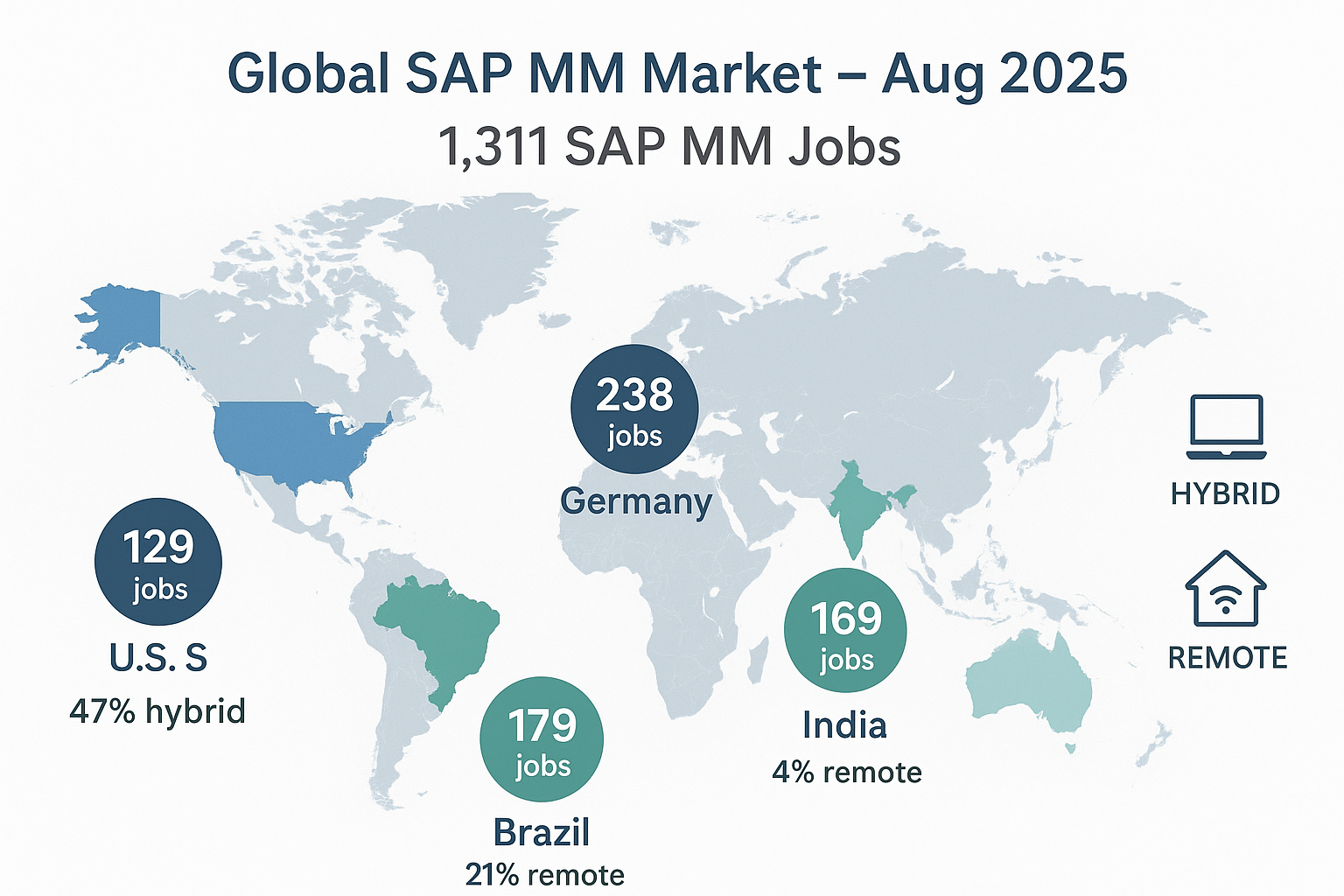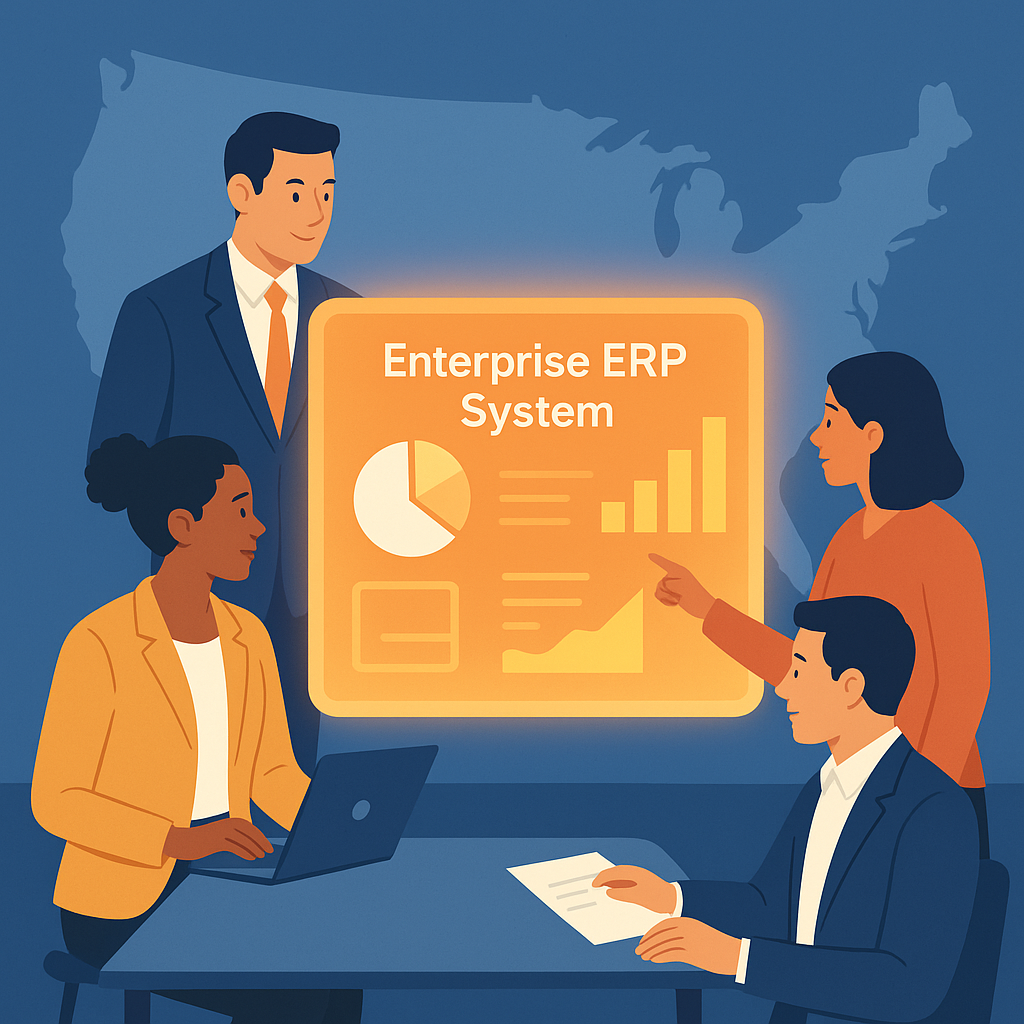🚀 Starting a Career in SAP: Some Honest Advice
🚀 Starting a Career in SAP: Some Honest Advice
SAP MM Specialist | S/4HANA Certified Consultant
May 1, 2025
Hey folks,
Lately, some people have been connecting with me because of my posts, and I’ve been trying to expand my network. This social media world is still new for me, but it’s been an interesting journey.
I’ve noticed a lot of people from the SAP field here, but also quite a few looking to break into it. One person recently asked for some advice, and I tried my best to share what helped me.
Of course, this isn’t a one-size-fits-all solution. It’s just my personal experience, shared with the hope that it might be useful. Use this as one more data point in your decision-making.
🧭My Starting Point
I was working as a logistics assistant when I got involved in an SAP implementation project at the company I was with. After trying out a few different career paths, I decided to invest in an SAP academy to make the switch to analyst/consultant.
Why SAP?
- Good salaries
- High demand for professionals
- A senior consultant earns well without needing to “luck into” a manager role
Back then (and even up to 5 years ago), certifications weren’t a huge requirement. In my early interviews, no one ever said, “you must have a certification.” Maybe one client asked once, and it was more of a tie-breaker.
That’s starting to change. With SAP’s partnerships and the ongoing migration to S/4HANA, certifications are gaining weight. But I’ll save that topic for another time.
I was lucky. I lived with my parents and had savings. I’ve always been financially cautious and lived simply. But today, an official SAP academy can cost upwards of $1,200 dollars, and SAP now requires you to renew certifications every 2 years.
That means subscribing to Learning Hub and taking update exams. Basically, a recurring cost just to stay certified.
So my first piece of advice is: think carefully. I know people who got certified and still couldn’t get into the field.
🎓What Certifications Won’t Teach You
Yes, certifications are valuable, especially today. But they’re just a line on your resume. They don’t prepare you for real-life challenges.
SAP academies last 2 months. Do you really think that’s enough to become a senior consultant?
What really counts is:
- 🔥 Experience
- 🔥 Stress
- 🔥 Solving problems under pressure
Every good consultant I know got better by surviving tough projects, not just by studying.
And it’s not just about being technically smart. Soft skills matter just as much. But we’ll talk about that another day.
🔍So, How Would I Start Today?
Here’s how I would approach it if I were starting now:
-
Fix Your Resume
Be clear and focused. In SAP, only your SAP experience matters.
Worked 10 years in sales and want to move to SD? That’s fine. Just summarize it in a line or two.
When we reviewed resumes in consulting firms, we looked for:
- Years of experience in module X
- Level per skill: Trainee, Junior, Mid or Senior
Don’t detail a huge list of every job. Highlight only what adds real value.
-
Stay Focused
Don’t say you know 4 modules unless you really do. Everyone in the industry knows how long it takes to learn one well.
Very few people are experts in more than 2 modules. Keep it real.
-
Can’t Afford an Academy? No Problem (for now)
There’s free material online, especially for core modules like MM, SD, FI, and ABAP. Most of it is in english.
So here’s a 2-in-1 tip:
- Pick an older core module with more free content
- Learn English
Don’t treat English like a crash course in SAP — it’s a long-term investment. Expect to dedicate at least three years of consistent effort, at a minimum.
Start with vocabulary. Mix english into your day: songs, YouTube, SAP videos. It’s worth it.
English wasn’t just for SAP. It opened my first real door 20 years ago when I joined my first implementation.
-
Don’t Collect Useless Certificates
Lots of people post dozens of certificates. That’s not the point.
It’s great to keep learning. But more is not always better on LinkedIn or resumes.
Show your 5 most relevant certifications, especially SAP ones. And remember: only SAP-issued certifications count in most partnerships between consultancies and SAP. Be strategic.
-
Don’t Give Up
Yes, it’s tough. Lots of people want in, and the door is narrow.
Senior consultants don’t stay unemployed for long. But getting your first job is hard.
When I finished the academy, I got lucky and found a job quickly. But I was willing to move from home and take a pay cut.
Not everyone can do that, and that’s okay. But don’t quit. Stay focused. Play the long game. Consider whether this truly makes sense for the stage you’re at in your career. It won’t be the right fit for everyone.
-
Own Your Job Search
You want a job in SAP? Then invest your time wisely.
- Study
- Look for real opportunities
- Send your resume
You’ll get a lot of rejections. Keep going.
But please, don’t tag 50 companies in a post saying “I’m available”. That’s not how this works.
If you don’t spend time looking for your next job, do you really think a company’s social media analyst is going to find a job for you and say, “Hey, we’ve been waiting for someone just like you!”
Come on. That’s not how the world works. Start strong. Start right.
Hope this helps more than it confuses.
🙏 Wishing you all a great day. If you’re just starting your SAP journey, I wish you strength and patience. You’ll need both.
Frequently Asked Questions
It depends on your situation. Certification can help you understand the system and signal commitment to employers, but it’s not a guarantee of employment. If you can afford the investment and are committed to an SAP career, it’s worth considering. However, certifications need to be paired with networking, continued learning, and sometimes a willingness to start in adjacent roles that might lead to SAP positions. Be prepared for a potentially long job search as a newcomer, especially if you lack IT or business process experience.
For beginners, core modules like SAP MM (Materials Management), SD (Sales and Distribution), or FI (Finance) often make sense as starting points. These modules have been around longer, meaning there’s more learning material available (including free resources), and they remain fundamental in most SAP implementations. Choose a module that aligns with your background—for example, if you’ve worked in accounting, FI might be natural; if you have procurement experience, MM could be a good fit. The ideal module combines your existing knowledge with market demand in your region.
English proficiency is extremely important for a successful SAP career. Most SAP documentation, training materials, support forums, and community resources are in English. International projects often use English as the common language, and many client communications happen in English as well. While local language skills are valuable for certain positions, limiting yourself to non-English resources significantly reduces your learning options and career mobility. Investing in English language skills should be considered a core part of your SAP career development, not an optional add-on.
Share this content:



Post Comment